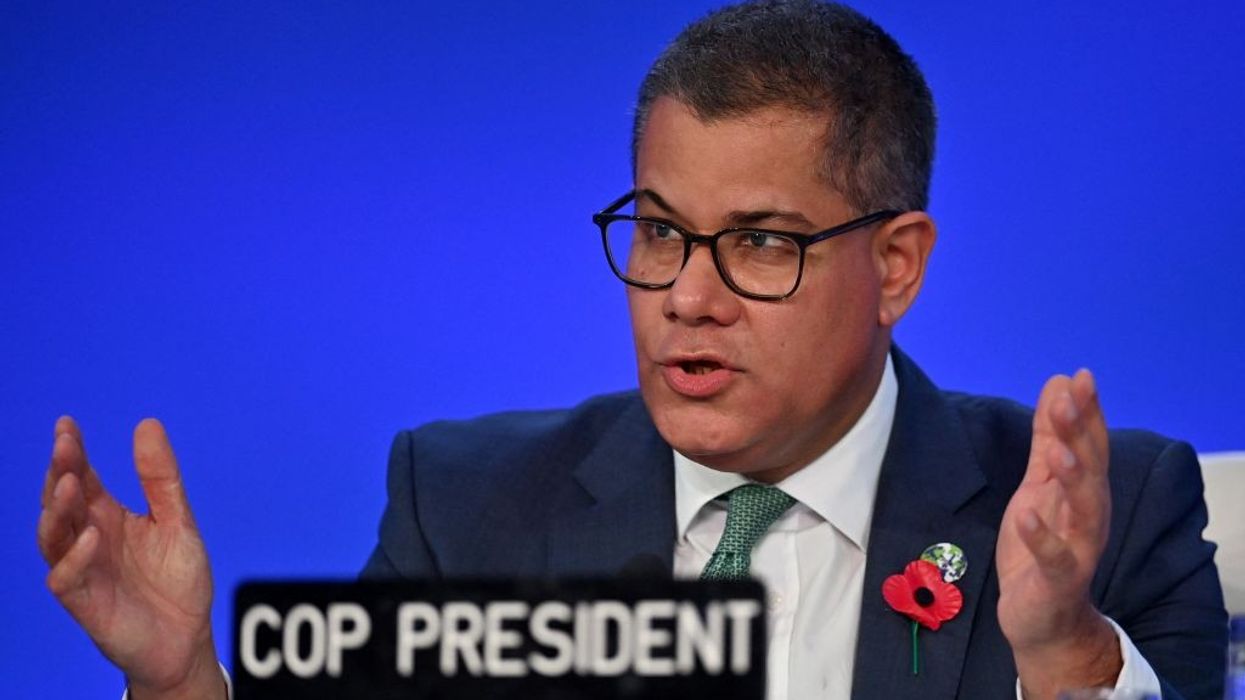COP26 climate talks were closing in on a global deal aimed at limiting devastating global warming, with UK organisers hoping for a final agreement to the marathon negotiations on Saturday (13).
Delegates from nearly 200 nations are tasked with keeping alive the 2015 Paris goal of limiting temperature rises to 1.5 degrees Celsius, as warming-driven disasters hit home around the world.
Developing economies led by India have balked at demands to do more to curb emissions without financial support to transition away from fossil fuels and to adapt to the accelerating impacts of climate change.
The deadlock pushed COP26 past its scheduled end on Friday (12), with the summit organisers confirming that a new draft text would not be published for scrutiny until early Saturday in Glasgow.
"I envisage formal plenary meetings in the afternoon to adopt decisions and close the session on Saturday," said COP26 President Alok Sharma.
Two weeks of hard-fought negotiations have seen thousands of protesters descend on the Scottish city of Glasgow to keep up the pressure.
The summit began with a bang as world leaders came armed with a string of headline announcements, from a commitment to slash methane emissions to a plan to save rainforests.
Negotiations received a further boost on Wednesday (10) when the US and China -- the two largest emitters -- unveiled a joint climate action plan, although it was light on detail.
But current national emissions-cutting plans, all told, would lead to 2.7C of heating, according to the UN, far in excess of the Paris target.
Phasing-out coal power
The latest draft COP26 agreement released Friday called for countries to accelerate "the phase-out of unabated coal power and of inefficient subsidies for fossil fuels".
That was softer than the first version of the text, but observers said the inclusion of the fuels driving the climate crisis was an important step.
The text requests countries to come back next year with updated climate pledges.
A faultline remains over the failure of wealthy nations to meet their decade-old promise to provide $100 billion annually to help vulnerable nations prepare for the worst.
Kenyan environment minister Keriako Tobiko told delegates that failure to honour the funding pledge had severely hurt confidence.
"For myself, for Kenya, our trust has been shattered," he said, as more than 100 indigenous and other protesters marched through the summit venue demanding the rich world honour its promises.
Developed nations favour a greater push on emissions reductions, something countries yet to fully electrify their grids -- and largely blameless for emissions -- feel is unfair.
Countries already battered by climate disasters such as record-breaking drought and flooding are demanding they be compensated separately for "loss and damage".
Observers said that rich nations were blocking progress with an unwillingness to unlock new funding.
"If we want to get out of Glasgow with a decent outcome, we need to see real movement, particularly from the US and EU on a loss and damage facility and generally on climate finance," said Mohamed Adow, head of the Power Shift Africa think tank.
(AFP)





